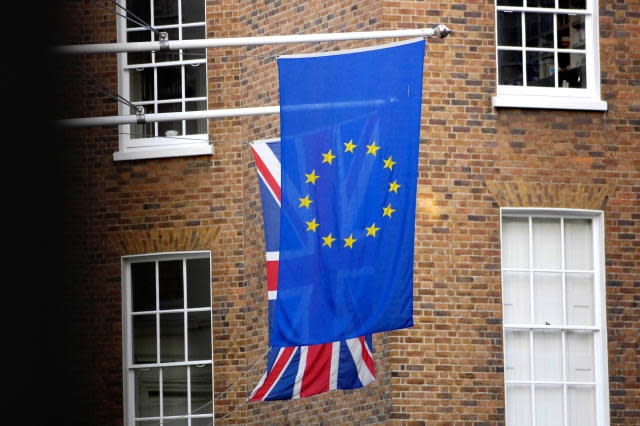Would our exit from EU cause 'credit crunch part 2'?

The question of whether the UK ought to stay in or leave the EU is likely to be settled once and for all (or at least for a generation) within the next two and a half years.
And, while it is a sign of a thriving democracy that we are able to cast our vote on such an important decision, the reality is that nobody really knows the full extent of the impact of either a 'yes' or 'no' vote. In other words, we're being asked to vote for Uncertain Outcome A, or Uncertain Outcome B.
A Weak Eurozone
Of course, staying in the EU may be viewed as the 'safe' option by many people and, as such, the US and many other countries across the globe seem to be keen on that idea. They may argue that since the UK has been part of the EU for a number of years, keeping the status quo is unlikely to cause too much upheaval and is unlikely to mean falling employment, declining demand for UK exports and reduced inward investment into the UK. And, in the short run, this is likely to be the case, since investors, business people and people in general do not like sudden change.
However, looking a little further down the line, remaining part of the EU is a huge gamble. That's because most of its participants are in the single-currency region, which is a very imperfect system. Evidence of this is widespread; the economic performance of the Eurozone has been disastrous in recent years, economic growth is still extremely slow, employment levels are relatively low and even a major quantitative easing programme launched by the ECB may not be enough to push Europe towards economic prosperity.
Certainly, the question is whether the UK should remain part of the EU, not join the Euro. However, by remaining part of a system that, from an economic perspective, does not appear to work (and, ultimately, may never work) could compromise the UK's long-term economic growth profile.
A Known Unknown
Of course, leaving the EU will almost certainly mean major upheaval, uncertainty and, quite possibly, fear among investors, businesses and the wider public. As such, it is viewed by many as the riskier option, with it being unclear exactly what the UK's relationship with the EU would be. For example, would we have a loose manufacturing, but not financial services, agreement with the EU (as Turkey does), or would we sign up to the European Economic Area (as Norway does) and, to all intents and purposes, have a very similar arrangement as that at present, with a subsidy still being payable for access to the single market?
Clearly, these questions will be answered in due course. However, in the short run, the UK leaving the EU could cause a sharp deterioration in the macroeconomic outlook and cause the UK to experience another recession. This would likely be caused by fear for not only the UK economy and its future performance, but also for the outlook for the EU, too, which would essentially be losing one of its three most powerful economies.
As for the long term performance of the UK economy, we simply do not know what the full impact of leaving the EU will be. Various studies have said that the impact will be negligible, others have said we could see a 10% fall in GDP. Ultimately, though, there is no precedent for such a major change and so there is no comparator from which to base future forecasts and expectations. Indeed, much of its impact will be decided by the terms agreed with the EU upon exiting the union, which will take place after the vote. Punitive terms would clearly be bad for the UK's long-term economic performance, while more accommodating ones may not be such a bad thing in the long run.
EU rule could cost mortgage borrowers thousands
Looking Ahead
So, while the referendum may appear to represent a clear choice, it is rather akin to making a bet on a horse race. Do you stick with a disappointing performer which has a long and proud history of race wins, but that has lost its way in recent years? Or, do you twist and go for a new runner with no track record and which none of the other jockeys are too keen to back? Ultimately, the decision is ours and, in reality, nobody really knows the answer.
Of course, the current uncertainty that is prevalent could present a superb buying opportunity for long term investors focusing on diversified, international stocks. With that in mind, the analysts at The Motley Fool have written a free and without obligation guide called 5 shares you can retire on.
The five companies in question offer stunning dividend yields, have fantastic long-term potential, and trade at very appealing valuations. As such, they could deliver excellent returns and provide your portfolio with a major boost in 2015 and beyond.
Click here to find out all about them - it's free and without obligation to do so.
Read more:
70% undecided on referendum
EU rule could cost mortgage borrowers thousands




